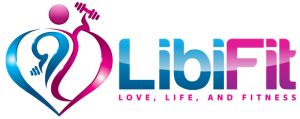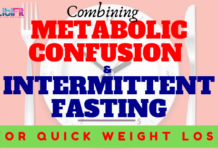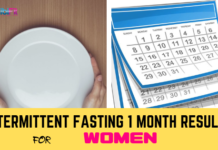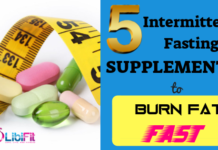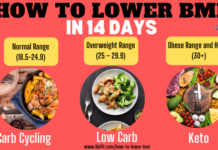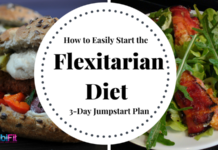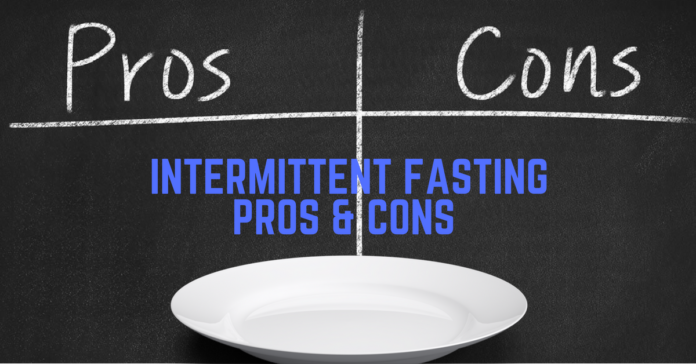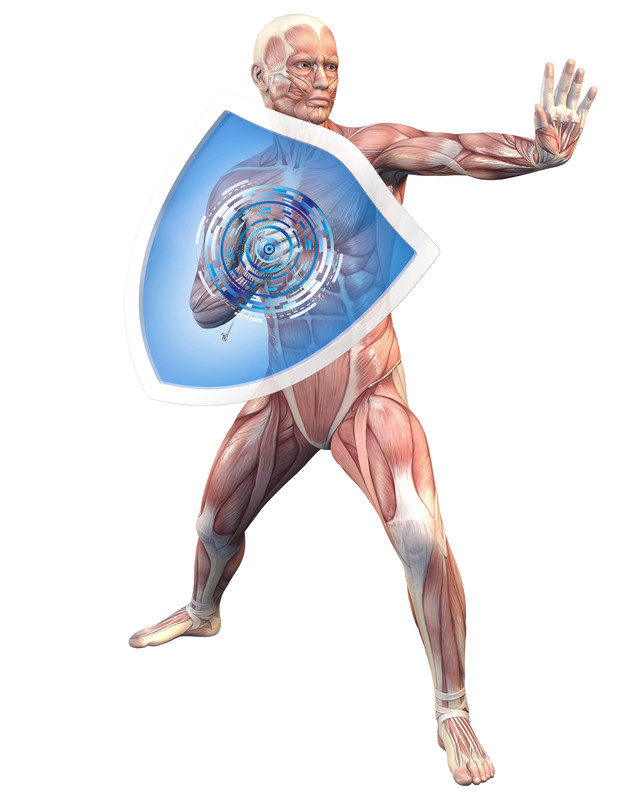Every weight loss approach has pros and cons and so is the case with intermittent fasting. In this article, I’ll share intermittent fasting pros and cons article and give you some food for thought concerning whether or not this weight loss method is right for you.
What is Intermittent Fasting?
Despite the scary name, intermittent fasting is not about the dreaded process of starving yourself or only drinking water for days on end. So say goodbye to the vision of hunger-induced delirium. You can experience the same weight loss benefits of prolonged fasting, but with none of its negative side effects.
The key word here is “intermittent.” Intermittent fasting is a method of structuring your meals to achieve an optimal balance between fasting and eating in order to maximize weight loss.
Unlike traditional diet plans, intermittent fasting is a method of calorie restriction rather than restriction of certain foods. It focuses on when you should eat rather than on exactly what foods you should and shouldn’t eat. Intermittent fasting protocols do not allow eating solid foods during the fasting days, but allow fluids like water, tea, and coffee.
Intermittent fasting is a natural process. Skipping meals was not uncommon for our ancestors. They often did not have the means to eat three square meals every single day of the week. In addition to that, they certainly didn’t have the means to eat whenever they wanted. In a sense, our body is naturally geared towards intermittent fasting. This allows ample rest in between meals so that we are not continuously expending energy and resources in digesting food. Fasting helps our precious energy reserves to be diverted towards fighting disease and eliminating waste, among other important functions. While intermittent fasting is a powerful weight loss method, it is not for everyone.
Here is the breakdown of why some people are jumping up and down about it while others are rubbing their chins with a worrisome gaze.
Types of Fasting
There are many different ways to do intermittent fasting that range from easier to more difficult plans. Here are some of the more popular ways people do it.
- 16/8 plan: Arguably the easiest and most popular method is to eat within an 8 hour window and fast for 16 hours. This can be accomplished simply by abstaining from eating after dinner and skipping breakfast. Some people are not big breakfast eaters and they aren’t that hungry in the morning. If they don’t eat after dinner then you probably didn’t realize it at the time, but you have done intermittent fasting!
- 5:2 plan: Another method of intermittent fasting is to eat regularly for five days and fast for two days, in which you only consume 500 daily calories.
- Eat-Stop-Eat or Fasting Every Other Day plan: This is the more difficult plan. This involves eating regularly for one day and then fasting for 24 hours. For example, you might eat dinner at 6:30 pm on Tuesday and then fast until 6:30 pm on Wednesday.
Learn more about intermittent fasting strategies here:
3 Fast Acting Intermittent Fasting Weight Loss Strategies
Pros of Intermittent Fasting
- You don’t have to deprive yourself of the foods you enjoy; you just have to eat less of them.
- Intermittent fasting maximizes your potential for fat burning as it induces a metabolic shift away from burning blood sugar stored in the liver as glycogen to using fat for fuel.
- Changes hormone levels to facilitate fat loss. The hormone, insulin goes out of whack in type 2 diabetes and there is evidence to suggest that intermittent fasting reduces insulin resistance. This scenario is the hallmark of type 2 diabetes as well as unhealthy eating habits.
- Increases your energy levels by boosting the amount of mitochondria, the energy generators of each and every one of your cells.
- Powerful way not only to lose weight but also lower disease risks associated with the onset of type 2 diabetes and heart disease, among others. Intermittent fasting boosts your immune system, and facilitates the removal of disease agents and wastes from the body.
Pros Summary
Intermittent fasting helps shed fat off your body by both restricting the number of calories you are eating and by increasing your metabolic rate. This ensures more burns fat is being burned for energy. This not only benefits you in the form of weight loss, but also in the form of increasing your energy, lowering certain disease risks, and boosting your immune system.
Cons of Intermittent Fasting
Believe the hype is real! Everyone seems to be talking about intermittent fasting. But what are also real are many of its alleged drawbacks.
- Unsurprisingly, hunger is the main side effect of intermittent fasting. And while many people do feel hungry when beginning intermittent fasting, persistent, agonizing hunger should not be taken lightly. After all, hunger is a natural signal sent by your body to let you know that you are in need of nutrients.
- Some people should consult their doctor before even trying to do intermittent fasting. This includes the elderly, pregnant women, and people with metabolic diseases and eating disorders.
- Women have to be especially careful, as in some cases intermittent fasting has been shown to affect a woman’s menstrual cycle and affect fertility. However, we have developed a system specifically for women to avoid these hormonal issues. Read about it below.
- While many of the hormonal changes facilitate fat loss, some of these changes can cause an increase in the stress hormone cortisol, which can be dangerous. (But we have got you covered. Check out our intermittent fasting for women system below.)
- It’s difficult! Intermittent fasting is hard and it takes a lot of self-control.
Cons Summary
For some people, intermittent fasting can be dangerous. Some people, especially if they have pre-existing medical conditions, should not try it before consulting their doctor. If you do try it, you should be aware of potential warning signs of persistent agonizing hunger and other health effects such as effect on your menstrual cycle, as these might be warning signs that you should to stop intermittent fasting.
Intermittent Fasting Pros and Cons…What You Should Do?
Now that you have learned about a few intermittent fasting pros and cons, what should you do? For certain individuals there are real health risks involved in intermittent fasting and they should not try it without speaking to their doctor first. Unlike many weight loss methods, intermittent fasting is something that you can really ease yourself into. You can also do it without putting yourself at any health risks if you do it carefully and at your own pace.
For most people interested in weight loss I would say, try it! You do not have to begin at a sprint, fasting for 24 hours right from the get-go. You can however, begin with the easier and more manageable plans such as the 16/8 plan. There are many different methods of doing intermittent fasting so you can find the method that works best for you.
Additionally, not everyone is going to have success with intermittent fasting. While it is worth trying if you are serious about weight loss, it is not for everyone. Intermittent fasting is not the be all and end all of weight loss methods. Some people might achieve more weight loss through less risky and just as effective methods such as portion control and exercise. Intermittent fasting alone provides enormous health benefits for some people. However, ensuring you are eating healthy foods and exercising is always recommended not only for weight loss but also for living a healthy life.
Our Intermittent Fasting for Women System
Libifit has taken the time to create an intermittent fasting protocol just for women. Much of the current research and programs concerning intermittent fasting is primarily for men. However, using our approach to intermittent fasting, us women can easily take on this eating pattern to lose weight, detox our bodies, and experience many other health benefits without the typical hormonal side effects sometimes present while intermittently fasting. If you want to learn more about our tested and proven intermittent fasting for women system, click the ebook below.
Sources
https://www.healthline.com/nutrition/intermittent-fasting-guide#section11
https://www.healthline.com/nutrition/6-ways-to-do-intermittent-fasting
http://library.crossfit.com/free/pdf/CFJ_2017_1_Nutrition4-Synkwoski5.pdf
https://drjockers.com/intermittent-fasting-immune-system/
https://drlorishemek.com/pros-and-cons-of-intermittent-fasting/
